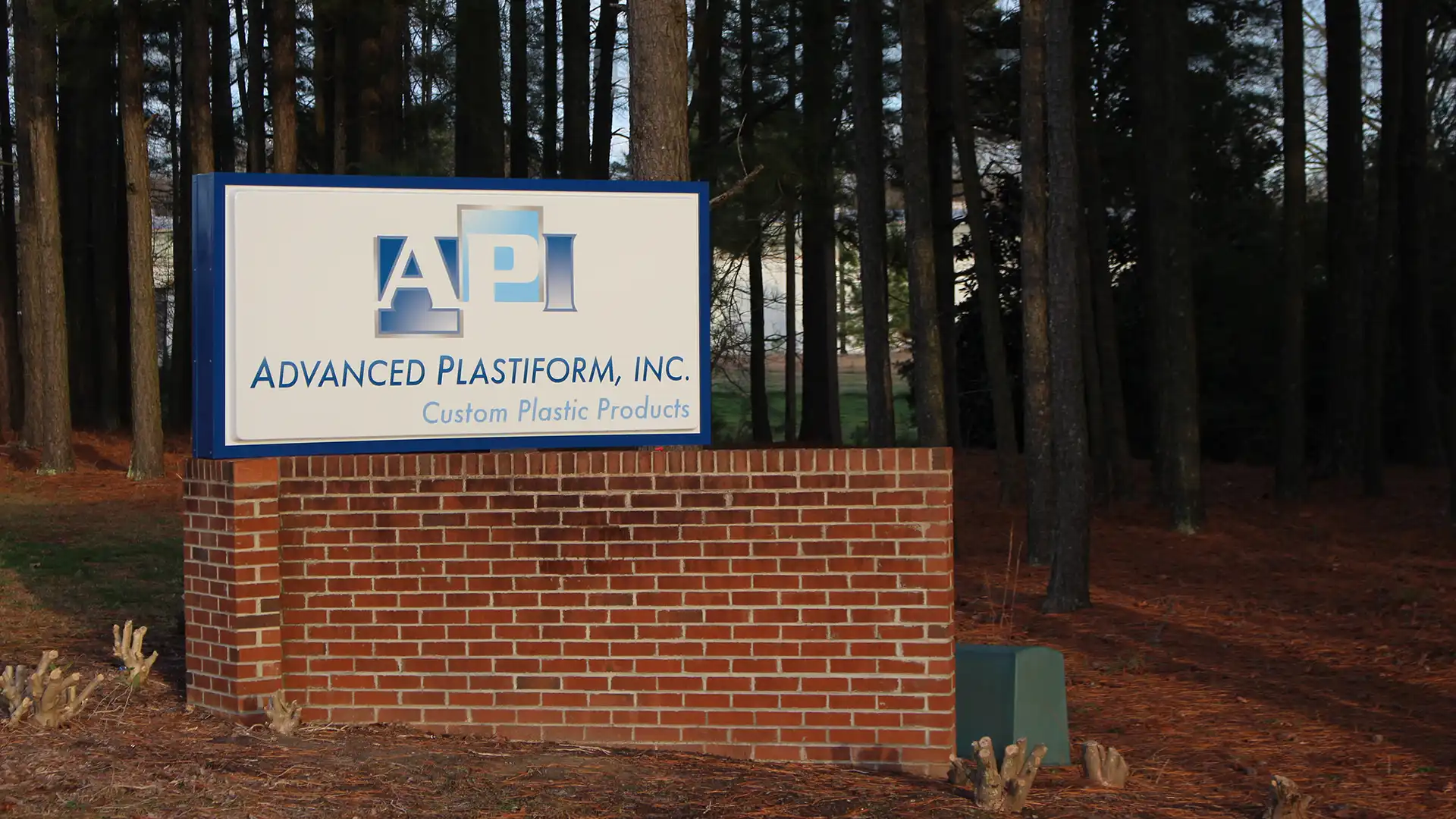We're looking at why companies choose pressure forming to manufacture custom plastics and the common…
Common Everyday Vacuum Forming Products
Vacuum forming is often thought to be an outdated, ineffective method of plastic manufacturing, especially compared to injection molding or pressure forming. However, vacuum forming is an economical, efficient method of production that is used on a wide variety of products. To help you get a better understanding of this type of thermoforming and why it may be ideal for your custom plastics, our thermoforming company in North Carolina is sharing several everyday vacuum forming products used across all types of industries.
What Is Vacuum Forming?
Vacuum forming is a way to manufacture plastics in which large sheets of thermoplastic are heated until malleable but still solid, then fitted over a custom mold, typically made from aluminum. There are small vents in the mold, and once the plastic is stretched over the mold properly, a vacuum is turned on. The suction from the vents pulls the plastic more tightly against the mold, creating the necessary shape.
Pros and Cons of Vacuum Forming
Vacuum forming is a simple yet effective manufacturing process used to create a wide range of plastic products. While it offers several advantages, there are also some limitations to consider when deciding if this method is right for your project.
Pros of Vacuum Forming
- Quick turnaround time for production
- Highly efficient, especially for larger items
- Ideal for producing large parts
- Low cost per unit, making it cost-effective for mass production
Cons of Vacuum Forming
- Not suitable for plastics requiring sharp corners or intricate details
- Limited ability to create complex angles with little to no draft
Industries Relying on Vacuum Forming Products
Vacuum forming is an ideal method for creating lightweight, durable plastic products and components that don’t require sharp angles or intricate details. Its efficiency and cost-effectiveness make it a go-to process for many industries. Below, we’ll explore some of the key industries that rely on vacuum forming products for everyday use, created using this technique.
Automotive
The automotive industry is one of the most reliant on vacuum forming, as it’s used to produce parts for both consumer and commercial vehicles, trucks, and buses. Vacuum forming helps manufacturers create lightweight, durable components at a lower cost.
Some common use examples are:
- Trunk tubs
- Truck bed liners
- Dashboards
- Bumpers
- Headlight covers
Agriculture
Vacuum forming plays a crucial role in farming and agricultural product manufacturing, helping to produce durable, weather-resistant parts at a low cost. These parts are designed for heavy use and exposure to harsh environments.
Examples include:
- Hoods and covers for tractors and ride-on equipment
- Plastic seats on ride-on equipment
- Large-scale seed trays for plant propagation
- Acrylic or polycarbonate greenhouse “glass”
Electronics and Telecommunications
In the electronics and telecommunications industries, vacuum forming is commonly used to create the exterior components of both consumer electronics and communication devices. While many internal parts are made of thermosets, the outer casings are typically thermoplastic, making vacuum forming a suitable choice for parts in commonly used items.
These include the following parts:
- Television casings
- Computer housing
- Remote control housing
- Speaker enclosures
- Phone and tablet casings
- Router and modem housings
- Telecommunications equipment enclosures
Household Goods and Refrigeration

Vacuum forming is widely used in the household goods and refrigeration industries due to its affordability and efficiency. This manufacturing process allows for the production of both large and small items that are durable and cost-effective, making it ideal for everyday household products and essential refrigeration components.
Some examples of common products made through this process are:
- Refrigerator and freezer trays and liners
- Crisper drawers
- Bathtubs and shower enclosures
- Plastic cooking utensils (spatulas, ladles)
- Product packaging for food and household items
Medical Industry
The medical industry also benefits from vacuum forming, which is used to create sterile, single-use products and durable equipment. This process ensures that medical components are manufactured with precision while maintaining cost efficiency.
Medical professionals and patients encounter the following types of vacuum formed materials every day:
- Medical trays and containers
- Surgical instrument enclosures
- Disposable medical equipment (masks, gloves)
- Sterile packaging for medical tools
Transportation Industries
Vacuum forming plays a crucial role in various transportation industries, including aerospace, marine, public transport, RVs, trucks, and more. This process is ideal for creating lightweight, durable components that improve fuel efficiency, maintain structural integrity, and enhance functionality across different modes of transportation.
We all encounter these materials regularly, whether we know it or not–including in the following applications:
- Interior panels for aircraft, RVs, trucks, and cars
- Seat backs and trays
- Protective covers for instruments and control panels
- Cargo liners and storage compartments
- Marine dashboard covers and hatches
- Exterior trim and body panels for trucks and RVs
Retail and Display
Vacuum forming is widely used in retail for creating product displays and packaging solutions. It allows for the creation of lightweight, protective packaging that enhances product visibility and appeal. The retail industry often relies on material handling for various purposes. This involves the movement, protection, storage, and control of products and materials throughout the supply chain.
In the retail sector, items we encounter on a daily basis, include the following vacuum forming products:
- Custom product packaging
- Point-of-sale displays
- Retail signage
- Plastic trays for product organization
Why Partner with Our Vacuum Forming Experts?
Partnering with our vacuum forming experts at Advanced Plastiform Inc. ensures you receive high-quality, cost-effective plastic components tailored to your specific industry’s needs. Our team of plastics engineers has the knowledge and experience to guide you through every step of the process, from design to production, ensuring your project runs smoothly.
We take the time to answer common questions about vacuum forming, such as material choices, design limitations, and production timelines, so you can make informed decisions with confidence. With our commitment to customer service and precision manufacturing, we’re here to help bring your vision to life efficiently and affordably.
Call Us for a Free Quote on Custom Vacuum Forming Products
From car and tractor parts to product packaging and kitchen equipment, vacuum forming is a reliable, inexpensive way to get durable, long-lasting parts and products. We partner with clients in the Southeast and Mid-Atlantic states, including North Carolina, South Carolina, Pennsylvania, Maryland, Tennessee, Georgia, and Virginia.
To learn more about what method of plastics manufacturing is right for you or to get a free quote, reach out to us today at 919-404-2080 or fill out the contact form to get started.

